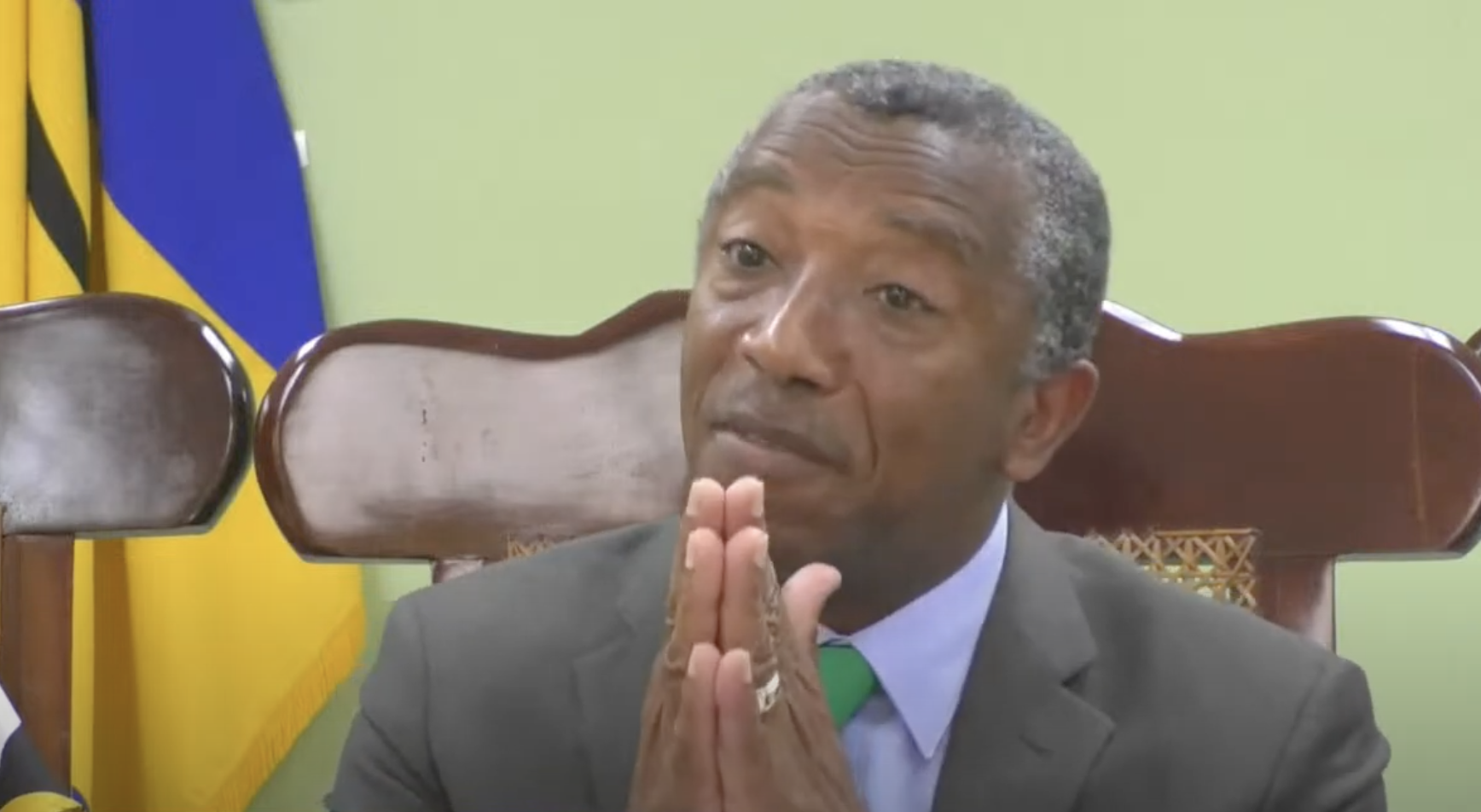Barbados Democratic Labour Party Unveils Crime Commission to Address Rising Homicides

July 19, 2024
Democratic Labour Party (DLP) unveils plans for a new crime commission in response to Barbados' rising homicide rate. Chaired by attorney Verla DePieza, the 12-member panel aims to engage citizens on crime causes and solutions.
The Democratic Labour Party (DLP) has rolled out its plans for a new commission on crime as Barbados grapples with a surge in slayings. With the number of homicides reaching 28 for the year, DLP political leader Ralph Thorne has positioned crime as a key political issue.
The 12-member commission will be chaired by former party president Verla DePieza, an attorney-at-law, Thorne told a press conference on Thursday. The panel aims to engage ordinary citizens to understand the causes, effects and potential solutions to crime.
“On the last occasion, we announced that we would establish a commission on crime. And I’m happy to say that we have made much progress with that,” Thorne said. “It’s a commission, I think, of 12 persons. Including the church. It will be chaired by our eminent attorney-at-law, Verla DePieza.”
The DLP’s crime commission plans to engage with communities across Barbados. Thorne explained: “We will go around this country. Since we concede that we don’t have the answers, we don’t have all of the answers. And the important people to speak to are not prime ministers and attorneys general. It is important to speak to the ordinary citizens of this country. Who is feeling the effects of crime? Who is hearing the gunshots? Whose children are dying from the gunshots?”
The commission will address three broad questions: the causes of crime, its effects on the community, and potential solutions. Thorne also outlined previous suggestions made to the government, including joint police and Barbados Defence Force patrols, socioeconomic responses, and legislative measures.
Thorne firmly rejected the notion that crime is not a political issue, calling it “false”.
He argued: “Crime, as we know, disrupts a society and destabilises the state, and the state is managed by the government. The government is a political entity, and the government functions as a political entity, broadly speaking, through two bodies. The parliament passes laws to control and prevent crime. The cabinet comes up with policies in relation to crime. And that is political activity.”
The opposition leader emphasised the government’s responsibility to address crime through legislation and policy implementation. He drew a distinction between blaming the government and asking it to accept responsibility: “I don’t think anybody is blaming the government for every incident of criminal activity, criminal wrongdoing, violence, or murder. Nobody’s blaming the government. There is a difference between blaming a government and asking a government to accept responsibility.”
Thorne criticised a recent announcement by Prime Minister Mia Mottley regarding a new organised crime unit within the police service to deal with gang violence. He argued that this move overstepped legal boundaries.
“The prime minister has gone beyond her legal bounds,” said the senior counsel. “That is a matter for the Commissioner of Police to deal with. The prime minister does not have that power. Under Section 8 of the
Police Act, the Commissioner of Police is responsible for the superintendence and administration of the police force.”
He criticised the government for failing to provide the necessary infrastructure in the courts. “They’ve been boasting about how they increased the number of judges. They increased the number of judges and have failed to provide the infrastructure in the courts that has allowed cases to move at a quicker pace. In other words, the transcription staff and the clerical staff haven’t increased.”
Thorne emphasised the opposition’s commitment to addressing crime and engaging with the public, while also criticising the government’s cultural response to the issue: “We don’t have all of the solutions. We don’t have them all, but we want to engage with them. This government comes and engages with the people when the crisis reaches its highest point.”
The opposition leader was particularly critical of the government’s approach to addressing the issue: “The government has a moral, legal, and political obligation to deal with the question of crime through the Parliament, the passage of laws, the cabinet, and the implementation of policy.”
One of the key solutions proposed by Thorne is the implementation of anti-gang legislation, similar to measures taken in other Caribbean nations: “If they want leadership on the issue of anti-gang legislation, the other countries have done it. We’ve had an attorney general plodding along for the last six years and have not talked about passing anti-gang legislation. It is known in this country that a lot of the crime is localised within gang activity. The logical thing to do is what Jamaica did, what Trinidad did—anti-gang legislation.”
The opposition leader also took aim at what he described as the government’s inadequate cultural response to crime, particularly criticising the promotion of revelry: “This government has promoted revelry at the expense of the rights, interests, and welfare of young children in this country. They’ve gone as far as the young children.”
He cited a specific incident to illustrate his point: “They opened the National Botanical Gardens, and the Barbados Labour Party sponsored an event a few months ago, and there was a DJ standing over a 13-year-old girl who was lying on the stage and gyrating. Now they want a five-minute prayer. It’s a good thing. But everybody at this table is praying every day.”
The DLP crime commission aims to take a grassroots approach to understanding and addressing crime in Barbados. “We will be going into the communities of Barbados,” said the DLP leader. “Into the school halls and church halls, and we will be asking people to literally come and give evidence. What do you know about crime? How is crime affecting you?”
This approach, according to Thorne, contrasts with the government’s method of engaging with the public which he said “engages with the people when the crisis reaches its highest point”.
(RG)


